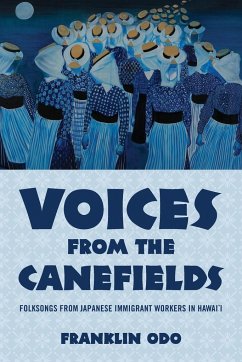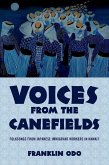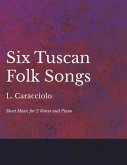Folk songs are short stories from the souls of common people. Some, like Mexican corridos or Scottish ballads reworked in the Appalachias, are stories of tragic or heroic episodes. Others, like the African American blues, reach from a difficult present back into slavery and forward into a troubled future. Japanese workers in Hawaii's plantations created their own versions, in form more akin to their traditional tanka or haiku poetry. These holehole bushi describe the experiences of one particular group caught in the global movements of capital, empire, and labor during the late nineteenth and early twentieth centuries. In Voices from the Canefields author Franklin Odo situates over two hundred of these songs, in translation, in a hitherto largely unexplored historical context.
Hinweis: Dieser Artikel kann nur an eine deutsche Lieferadresse ausgeliefert werden.
Hinweis: Dieser Artikel kann nur an eine deutsche Lieferadresse ausgeliefert werden.








